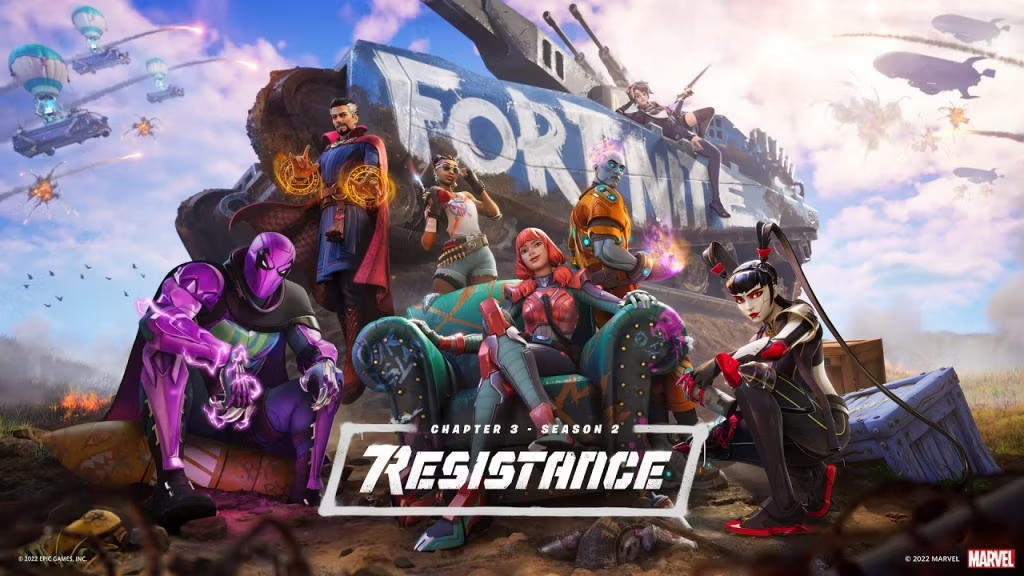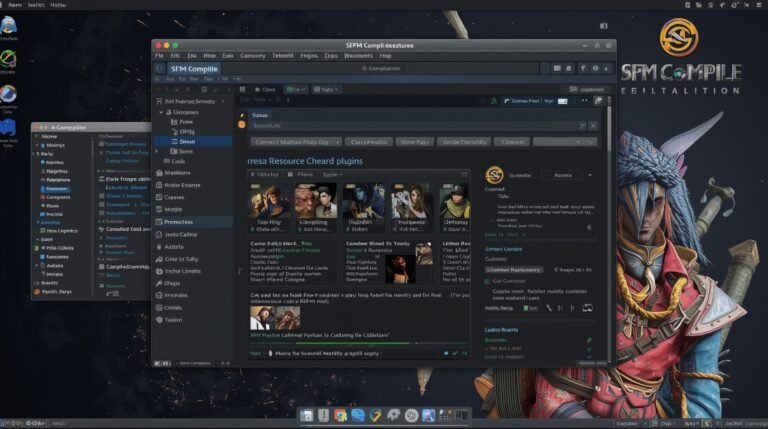Understanding “Fortnite Rule 34”: A Look at Internet Culture and Digital Boundaries
In the age of digital media and sprawling online communities, it’s no surprise that even popular video games like Fortnite become the subject of user-generated content that ranges from fan art to elaborate memes. One of the more controversial aspects of internet fan culture is something known as “Rule 34.” But what exactly does “Fortnite Rule 34” mean, and why is it talked about online? Let’s dive into the origins, implications, and ethical considerations behind this internet phenomenon.
What is Rule 34?
“Rule 34” is a widely known internet adage that says: “If it exists, there is porn of it—no exceptions.” Originating from internet forums like 4chan in the mid-2000s, Rule 34 is part of a larger set of humorous “rules of the internet” created by online communities to describe digital behavior and trends. While originally meant as satire, Rule 34 quickly gained traction and became a label for the creation and sharing of adult content featuring characters from pop culture, cartoons, video games, and even corporate mascots.
Fortnite and Its Massive Popularity
Released in 2017 by Epic Games, Fortnite exploded into a global phenomenon, attracting millions of players across all age groups. Known for its colorful, cartoonish graphics and accessible gameplay, Fortnite appeals especially to younger audiences. The game includes a rotating cast of characters, called “skins,” often featuring crossovers from Marvel, Star Wars, anime series, and more.
Its massive player base, combined with a rich collection of character designs, has made Fortnite fertile ground for fan creativity—but also for the rise of Rule 34 content.
What Does “Fortnite Rule 34” Refer To?
“Fortnite Rule 34” specifically refers to adult-themed, fan-made content based on Fortnite characters. These images, videos, and animations are typically shared on adult websites or specialized subreddits. This type of content isn’t official or endorsed by Epic Games, and it exists entirely outside the game’s family-friendly branding.
Characters like Lynx, Drift, Jules, and Calamity are often featured in such content, not because of anything in the game itself, but due to their popularity and distinct visual designs. As with other forms of Rule 34, the motivation behind creating this type of art varies—from satire and parody to genuine adult interest.
Why It’s Controversial
Here are a few reasons why “Fortnite Rule 34” has sparked debates:
1. Audience Age Concerns
Fortnite has a large underage player base. The spread of NSFW content tied to a game primarily aimed at minors raises concerns about exposure and digital safety.
2. Copyright and Intellectual Property
Epic Games owns the rights to Fortnite characters. Creating or distributing adult content featuring those characters can lead to legal issues, especially when it crosses into unauthorized commercial use.
3. Ethical and Cultural Implications
Some fans feel that Rule 34 content undermines the spirit of the game, while others argue it’s simply a reflection of online fan freedom. The ethical debate often hinges on issues of consent, especially when real-world people (such as streamers or cosplayers) are involved in derivative works.
How Epic Games Responds
Epic Games, like many developers, generally distances itself from Rule 34 content. While they do not publicly comment on every incident, their Terms of Service and community guidelines clearly prohibit the creation or distribution of sexually explicit material involving their IP. They’ve taken legal action in the past against unauthorized uses of their assets, including inappropriate content.
The Broader Discussion on Fan Content and Boundaries
Rule 34 is part of a larger conversation about where we draw the line between fan expression and responsible digital behavior. The internet thrives on remix culture—GIFs, memes, fan fiction—but when content enters NSFW territory, especially involving media with young audiences, creators and consumers alike must consider the social and ethical impact.
Tips for Navigating This Topic Responsibly
-
For Parents: Use parental controls and monitor online platforms your child accesses. Sites like Reddit, DeviantArt, and even Discord can sometimes contain NSFW content.
-
For Artists: Understand fair use and intellectual property laws. Respect boundaries and avoid creating or sharing explicit content tied to media aimed at minors.
-
For Gamers and Fans: Be critical consumers. Know the difference between official content and fan-made creations, and report anything that seems exploitative or illegal.
Conclusion
“Fortnite Rule 34” is a controversial yet revealing piece of internet culture. It reflects the complex ways in which fandom, creativity, and digital boundaries intersect in the online world. While Rule 34 may never disappear entirely, awareness, education, and responsible content creation are key to navigating its murky waters.
The takeaway? The internet is a wild place, but we all share a role in making it a safe, respectful, and creative space for everyone—especially when it comes to games beloved by young audiences






